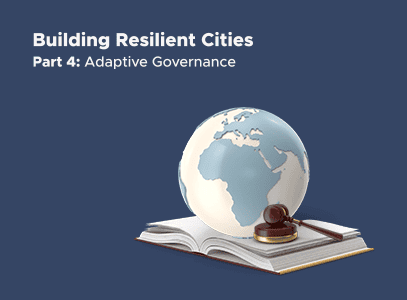After an external review that found staff were pressured into massaging data in favor of China, the World Bank has ended its long-running Doing Business report.
Doing Business, which quantifies business regulations in every country, has long been the subject of controversy over its methodology and influence on policymaking. But despite data irregularities, and very real wrongdoing by Bank staff, the report is at its core an intrinsically valuable exercise and should, with reforms, continue.
Doing Business assesses the regulatory environment in 190 countries across 11 topics, including starting a business, getting electricity, paying taxes, and enforcing contracts. In each of these areas, It reports information like the number of procedures, time, and cost required to complete that activity. Each country’s regulatory performance is ranked within each topic, resulting in an overall ease of doing business ranking that aggregates all measured categories.
Critics of the methodology have raised various objections in recent years which certainly warrant reforms. For instance, the hypothetical de jure data reported by Doing Business often differs greatly from the de facto experience reported directly by firms in the Bank’s Enterprise Surveys. Many firms report lower regulatory compliance time and costs than the report, likely due to a combination of differences in business types and sizes, location within countries, political influence, corruption, and other factors.
Critics also point out that Doing Business does little to capture government activities that strengthen business environments, such as workforce development and infrastructure provision. Further critiques of methodology covering taxes, labour regulation and other areas are prevalent as well. Despite these shortcomings, the mission of assessing the regulatory environment of each country is worthwhile.
Data on the state of de jure regulation conveys important information about a country’s business environment. Even if many firms skirt on-paper regulatory requirements and costs, knowing what those requirements are is broadly indicative of a government’s attitude towards business. Just because most firms do not pay the exorbitant listed price of a construction permit, that the permit is exorbitantly priced in the first place is still important information for policymakers.
Furthermore, as countries strengthen their public sector institutions, de jure and de facto regulatory experiences will converge, and the data reported will likely become a more accurate representation of the true business climate. While in high-income countries we take the advantages of operating in the formal economy for granted, many in low-income countries are locked out of the formal sector altogether, in part because of regulatory barriers and the opportunities for corruption they create. While the driving forces of informality are complex, it is plainly true that steep regulatory burdens privilege the economic interests of a well-off elite at the expense of the majority.
In March, a colleague and I submitted feedback on improving the methodology. We suggest that the Bank should not only continue collecting data on existing Doing Business categories, but also expand this effort in vital areas such as getting electricity and support for digital transformation. We also argue that Doing Business should account for market-supporting services provided by governments, like infrastructure and courts, and that doing so is entirely in the original spirit of Doing Business. Finally, we propose that the Doing Business methodology incorporate the reported experiences of actual businesses as measured in exercises like the Enterprise Surveys.
The external review commissioned by the Bank came to very similar conclusions, highlighting the need to capture de jure and de facto regulation, include government activities that improve the business environment, and more. The review also suggests removing the aggregate ease of doing business index and the individual country rankings, which addresses the concerns of many critics. While our principal concern should be the publication of all data collected, the value, or lack thereof, of any ranking exercises, such as restricting rankings to within income groups, warrants a debate. Finally, the review makes desperately needed recommendations to improve transparency and oversight of the report, made all too clear by the allegations of undue political influence levelled against former acting Bank president Kristalina Georgieva and current President David Malpass.
The review panel rightly points out that Doing Business is ‘a unique source of comparable global data, relevant for researchers, businesses, and policymakers, and potentially of great value to inform decisions by governments and firms’, but that unleashing that potential requires a major overhaul. Perhaps the Bank should have listened to its review panel, rather than discontinuing the report entirely. In its statement announcing the discontinuation of Doing Business, the Bank vaguely alludes to a new approach for assessing the business climate but provides no concrete plan or timetable for doing so. A better Doing Business has the potential to do a great deal of good for the global poor – the World Bank really should reconsider its decision to terminate the report.
We encourage you to follow CapX on Twitter and support this important publication.
See the original article here.







